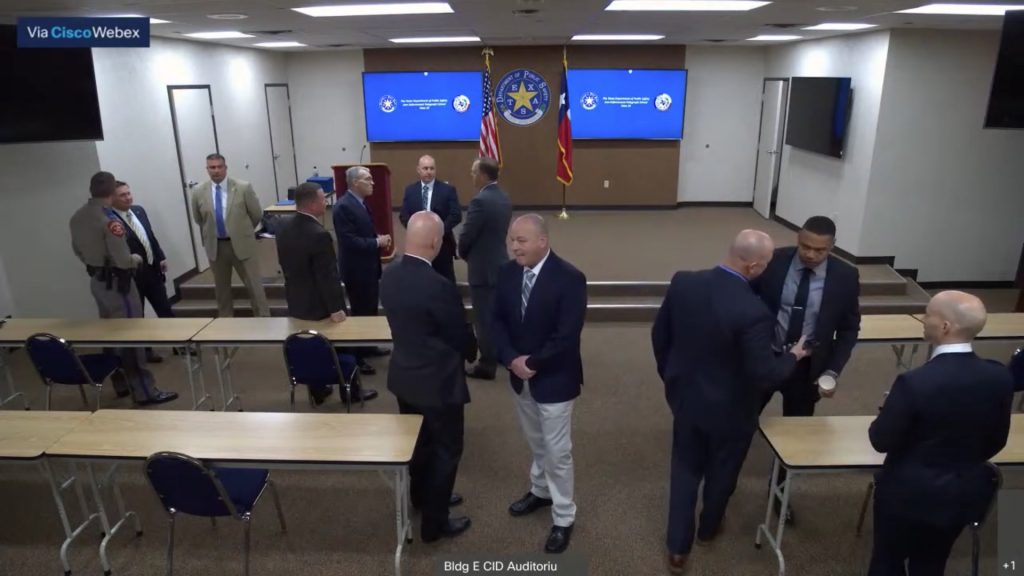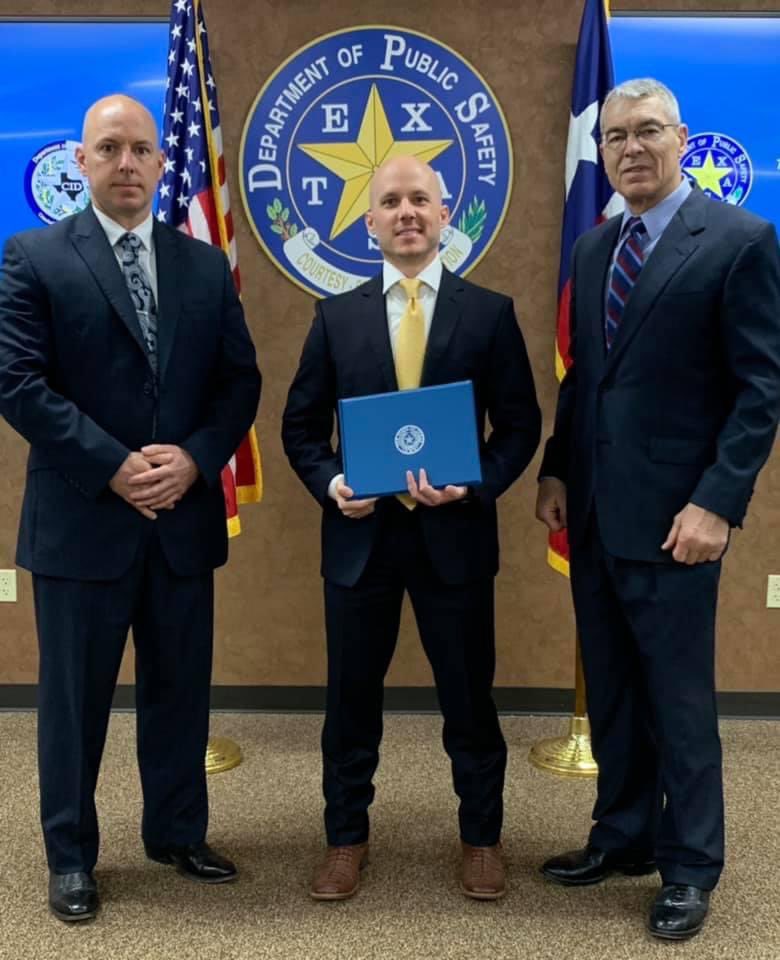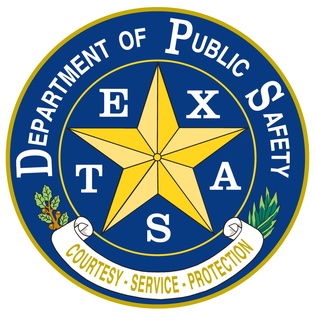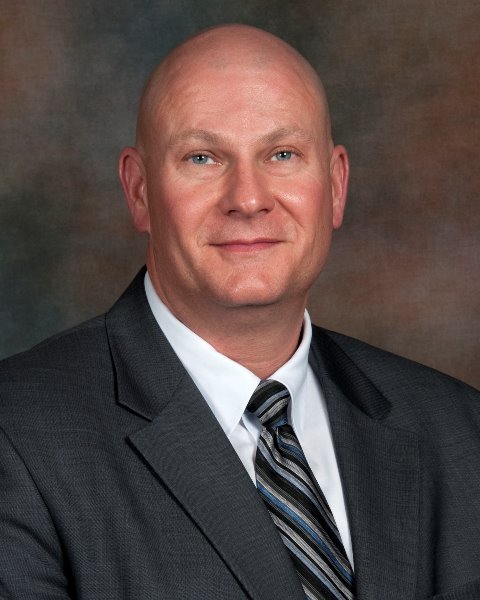On Friday, 12 March 2021, the Texas Department of Public Safety Polygraph School graduated its 29th class. In the midst of the most deadly pandemic to hit the United States in a century, and in defiance of current U.S. Center for Disease Control guidance and the city of Austin’s and Travis County’s mask mandates, participants did not wear masks and did not observe social distancing. They did, however, shake hands and touch their faces.

Texas DPS Director Col. Steven C. McCraw, a retired FBI agent who once headed the Bureau’s Inspection Division, gave the graduation address, portions of which AntiPolygraph.org has transcribed. In remarks that are often ungrammatical, McCraw expresses an evidently sincere belief in the pseudoscience of polygraphy, condescension for those who oppose it, and at the same time a recognition that polygraphy is all about interrogation and obtaining confessions. He expresses no concern for potential harm to innocent persons:

I do believe that this is such a important part, discipline, law enforcement discipline, without question. I’ve seen the benefit of it and in a world where crime is transitory—I know the sheriff and I were talking a little bit about it—you know it’s, wherever you’re at, whether it’s North Dakota, South Dakota, Nebraska, Oklahoma, certainly Louisiana or Texas, I mean what happens somewhere happens somewhere else. And we recognize that we’re working pretty much the same criminal organizations, the same criminals, and this, this thing, as long as there’s an unending demand for sex with children, we’re, we’re plagued with this depravity of mankind when we talk about what’s going on.
And, and at the end of the day, your job is to get the truth, and of course, we’re, we’re very proud about the school, and pleased that we’re able to produce it, but it’s only as good as the people you put into it, plain and simple. I mean, you are sitting here, there’s a good reason. You’ve exhibited throughout your career not just integrity, but good judgment, and interview, interview skills. I mean you have, already have the tools to get the confessions. You’ve demonstrated that. So you, whether you have a tool or not, but having the science behind it and the tool to help is so vitally important.
From the department’s standpoint, I guess from our standpoint, and I can tell you an example, if nothing else, pre-employment polygraphs. It’s amazing what people will walk into a door wanting to be a state trooper. I mean, we’ve got pedophiles, okay, obviously, we have, we have people who are planning armed robberies of a, an armored vehicle, we’ve had individuals that were thinking about fragging their leadership in Afghanistan. So there’s some, there’s criminals out there applying, and if not for, because the background looked good, everything looked good, if not for those pre-employment, you know, interviews, during confessions that many times those confessions happen even before the interview, before their polygraph is given, because of the quality of our people that are providing that uh, that pre-polygraph interview that they’re conducting, going over the particular facts. And it’s amazing, you know, how we’ve been saved.
While law enforcement applicants sometimes make disqualifying admissions, polygraph screening also results in many honest, well-qualified applicants being wrongly branded as liars and blacklisted. There is no evidence that law enforcement agencies that polygraph applicants have a more honest workforce than those that don’t. Notably, state and local law enforcement agencies in Massachusetts, Michigan, Minnesota, New Jersey and Oregon are prohibited by law from polygraphing applicants and employees.
McCraw continues:
So there’s people that don’t really like the polygraph in the legislature, in some other parts of the judicial system, but they don’t understand it, or haven’t seen it, and don’t recognize that, how productive it is.
McCraw’s supposition that those who “don’t really like the polygraph” don’t understand it is ill-founded. Those who understand polygraphy the best tend to oppose it. For example, the National Academy of Sciences conducted a thorough review of the scientific evidence on the polygraph and likened polygraphy to superstitious lie detection rituals in primitive societies.
As the late Dr. Stephen Fienberg, who led the National Academy of Sciences’ polygraph review committee observed, “Polygraph testing has been the gold standard, but it’s obviously fool’s gold.”
McCraw goes on:
At the end of the day, no one goes to jail on a polygraph. There’s got to be corroborating evidence. But there’s so many times where it’s a he said, she said, and you don’t know. And I can say even from a disciplinary standpoint as a director, when you’re looking at somebody that, you know, has, has compromised their integrity, but they’re consistent they had not, and you know, you don’t want to lose a good employee, or employee that appears to be a good employee, that’s worked so hard, you invested in, and you know, you don’t wanna, just based upon, you know, circumstantial evidence remove somebody, but at the end of the day, the polygraph is the great separator.
I mean that then, was it last week when someone I swore was telling me the truth. I moved finally, I thought that somebody that’s telling me something, here’s, here is a candidate we’re firing and it’s just unfair, uh, because clearly, he didn’t do it. Guess what? He lied, okay? And I wouldn’t have been able to know that unless there was a polygraph given in that regard.
Tactical polygraphs. Whoever came up with a tact—who’s idea was that anyway? Matt, did you have something to do with that? Yeah, somebody conspired. That’s a cool name, right? Not a strategic polygraph, but a tactical polygraph, okay? It implies that you’re, you know, proactive, you’re out there, you’re in the field, and you’re getting your hands dirty, you’re where it’s at. And that’s exactly what it’s about.
A so-called “tactical polygraph” is a polygraph “test” administered to a suspect promptly after arrest in an attempt to obtain admissions to crimes beyond those for which the suspect has been arrested. The suspect’s “failing” may be a pre-scripted part of the interrogation plan.
The “Matt” to whom McCraw called out is Texas Department of Public Safety Captain Matthew Mull, a polygraph operator and advocate of this coercive interrogation technique.
You know, we don’t do our, our sex trafficking operations without, without a polygrapher on site. I’ve been even lobbied by ICE HSI on more than one occasion to increase the number of polygraphers that we have, you know in the Rio Grande valley because of how productive it has been. Of course, it’s productive. And if, at the end of the day, you know it’s not only in terms of finding evidence to support, you know, putting them where they need to be, but it’s also identifying victims, other victims in that regard. And you are in a position to be able to do that.
You know there’s, not now, when you hit the day, first day running, you’re going to be in a position to do something that other people won’t be able to do. I mean, you’ve already got that skill to interview on top of that, you’ve got this, then you have the opportunity, because they’re being funneled into your presence, and you have an opportunity to make a difference. And sometimes, you know, patience is important, I know. You know, I don’t have it. But I know you have it, because sometimes you have to listen and empathize—for hours—with someone that you’re disgusted by.
I’m always, always reminded of someone that worked for me in, in my FBI days and we had the Tohono O’odham reservation in Arizona, and there was such pervasive child molestation on the, on the “res,” that, you know, how do you get the confessions? What do you, if someone does one, they do fifteen. How do you able to gonna elicit that infor—, you know how do you, and it’s about empathizing, and she was able to do that again and again and again, and followed up with a polygraph that always, you know, produced results in a way that we’re sparing the children from having to testify, which is brutal when you do so.
So there’s so many good things that you’re going to be doing, you know, whether it’s murderers, [unclear], whatever it is, you know, that cross your career, and, you know, and you’ll also, again, you know, in another discipline, ’cause people are understand that, hey, law enforcement is data based, scientific based, we don’t, we don’t, it’s not voodoo, okay, it’s about science, it’s about things that work.
Col. McCraw’s assertion that law enforcement is “scientific based” does not hold true when it comes to its reliance on polygraphy—a thoroughly discredited pseudoscience. “Voodoo science” is not an inapt characterization of polygraphic lie detection.
McCraw concludes:
It’s about, you know, evidence-based strategies. It’s in policing it is, is in fact a profession, and a very important, critical profession. There’s nothing more important that government does is protect its people, and you’re a key part of that with what discipline that you have that fits into it. And we’ve got an obligation to use all the tools that we can, and you’re, you’re a very important tool…
Law enforcement has no obligation to use tools such as the polygraph that are known to be scientifically baseless. McCraw’s remarks help to illustrate how deeply entrenched belief in the century-old, cop-invented pseudoscience of polygraphy is in American law enforcement.

Video of the Texas DPS Polygraph School Class 29 graduation ceremony is available on the Texas DPS YouTube channel here:

